Smoking Success: The 7 Best Beef Brisket Rubs That’ll Make Your BBQ Legendary
Welcome to the holy grail of brisket seasoning — a guide that turns your backyard barbecue into a Texas-style smokehouse miracle. Whether you're a seasoned pitmaster or a weekend warrior with a Weber smoker, the magic starts with the best beef brisket rub for smoking. In this deep dive, we’re spicing things up with pro tips, flavor science, and yes — plenty of salt and pepper.
Table of Contents
- Why the Right Rub Matters
- Top 7 Brisket Rub Recipes You Must Try
- The Science Behind Flavor Layers
- Pro Tips for Applying Your Rub Like a Pitmaster
- Common Rub Mistakes (And How to Avoid Them)
- Pairing Rubs with Wood for Maximum Flavor Impact
- How to Store and Extend Shelf Life of Your Rubs
- Frequently Asked Questions About Brisket Rubs
Why the Right Rub Matters
Let’s cut to the chase — a great brisket isn’t just about the meat; it’s about how you treat it before it hits the heat. A good rub is like a hug for your brisket. It forms the bark, enhances flavor, and can turn a mediocre hunk of cow into a culinary masterpiece.
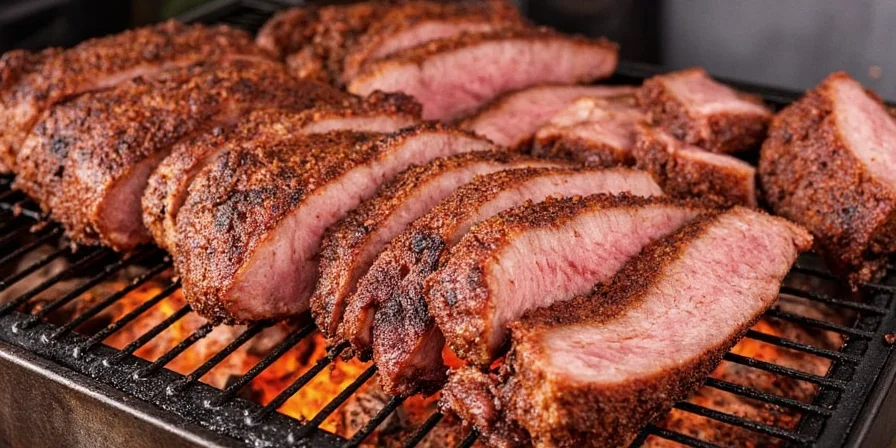
The secret? Balance. Salt for preservation, sugar for caramelization, pepper for bite, and herbs for depth. But not all rubs are created equal — and choosing the right one can feel like navigating a spice aisle during a sale at Whole Foods.
Top 7 Brisket Rub Recipes You Must Try
| Rub Name | Flavor Profile | Main Ingredients |
|---|---|---|
| Texas Triple Threat | Classic, smoky, peppery | Salt, black pepper, garlic powder |
| BBQ Boss Blend | Sweet & smoky | Brown sugar, paprika, chili powder |
| Spicy Southwestern Kick | Fiery and earthy | Cayenne, cumin, onion powder |
| Umami Bomb Rub | Rich and savory | Mushroom powder, soy sauce crystals, coriander |
| Herbaceous Heaven | Earthy and aromatic | Thyme, rosemary, oregano |
| Coconut Curry Surprise | Exotic and sweet-spicy | Curry powder, coconut sugar, turmeric |
| Coffee Lovers’ Rub | Bitter-sweet and bold | Espresso powder, cocoa, cinnamon |
Quick Overview of Each Rub
- Texas Triple Threat: The OG of brisket rubs — simple but deadly effective.
- BBQ Boss Blend: Perfect if you love that sticky-sweet bark everyone craves.
- Spicy Southwestern Kick: Adds fire without burning out your taste buds.
- Umami Bomb Rub: For those who want to impress foodies with layers of savoriness.
- Herbaceous Heaven: Fresh and green — ideal for herb lovers and Mediterranean-inspired meals.
- Coconut Curry Surprise: A fun twist for adventurous eaters who love global flavors.
- Coffee Lovers’ Rub: Deep, rich, and complex — think dark chocolate meets campfire.
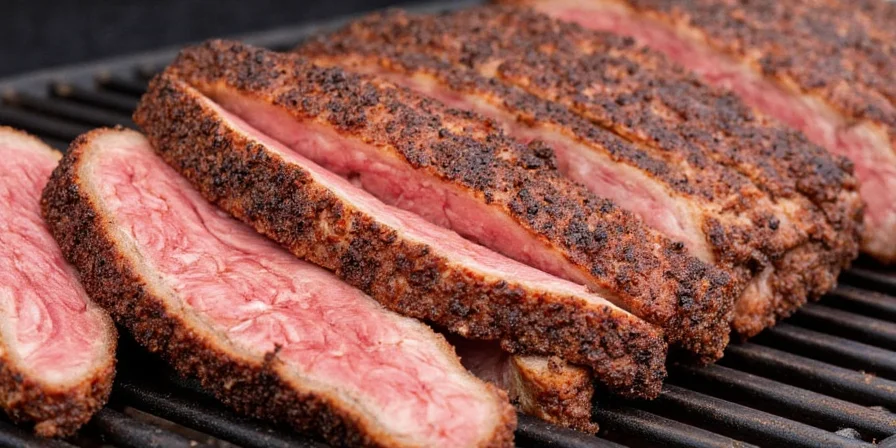
The Science Behind Flavor Layers
Ever wondered why some rubs stick better than others? Or why certain combinations create fireworks in your mouth? Let’s break it down.
- Salt: Pulls moisture to the surface, creating a glaze that helps other spices adhere.
- Sugar: Caramelizes on the outside, forming a crunchy bark and enhancing Maillard reaction.
- Acidic Elements: Though less common, citrus zest or vinegar can brighten up the flavor profile.
- Fats: Some people mix oil or mustard into the rub to help it stick. Others swear by dry application only.
Pro Tips for Applying Your Rub Like a Pitmaster
- Apply Generously: Don’t be shy! You should see a visible layer of rub on every inch.
- Press, Don’t Sprinkle: Use your hands to press the rub into the meat for better adhesion.
- Rest Time: Apply the rub 12–24 hours ahead for deeper flavor penetration.
- Wrap It Up: After resting, cover tightly with plastic wrap or butcher paper.
- Avoid Overseasoning: Especially when using pre-blended commercial rubs — read labels!
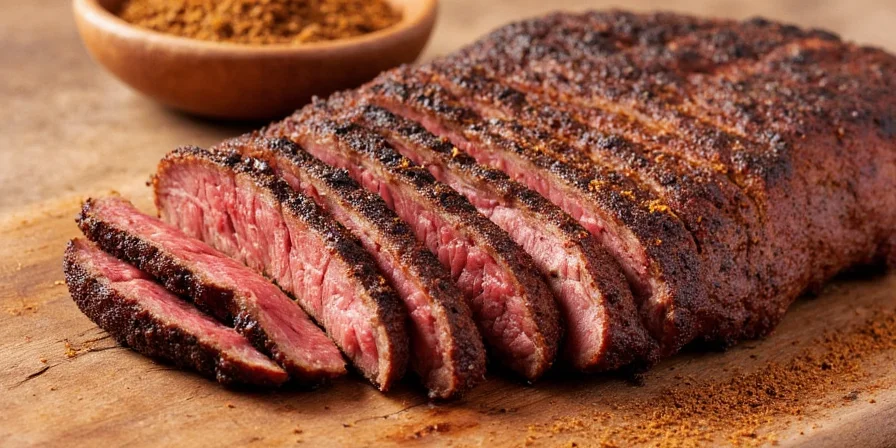
Common Rub Mistakes (And How to Avoid Them)
- Mistake #1: Using Too Much Sugar → Leads to bitter bark. Limit brown sugar to 1–2 tbsp max per pound.
- Mistake #2: Skipping Salt → Salt pulls moisture, develops flavor, and creates bark. Never skip it.
- Mistake #3: Not Adjusting for Fat Cap → If brisket has a thick fat cap, reduce oil/mustard use.
- Mistake #4: Rushing Application → Give the rub time to bond with the meat. Overnight rest = golden ticket.
Pairing Rubs with Wood for Maximum Flavor Impact
The wood you use plays second fiddle — or rather, duet — with your rub. Here’s a handy pairing guide:
| Rub | Best Wood Pairing | Flavor Synergy |
|---|---|---|
| Texas Triple Threat | Hickory | Robust and bold — perfect for classic barbecue lovers |
| BBQ Boss Blend | Applewood | Complements sweetness with a fruity edge |
| Spicy Southwestern Kick | Mesquite | Fiery combo that brings the heat and smoke |
| Umami Bomb Rub | Oak | Elegant and balanced, enhances savory notes |
| Herbaceous Heaven | Pecan | Mildly nutty undertones enhance herbal complexity |
| Coconut Curry Surprise | Cherry | Softens exotic spices with a touch of sweetness |
| Coffee Lovers’ Rub | Alder | Mellow smoke complements coffee’s roasted depth |
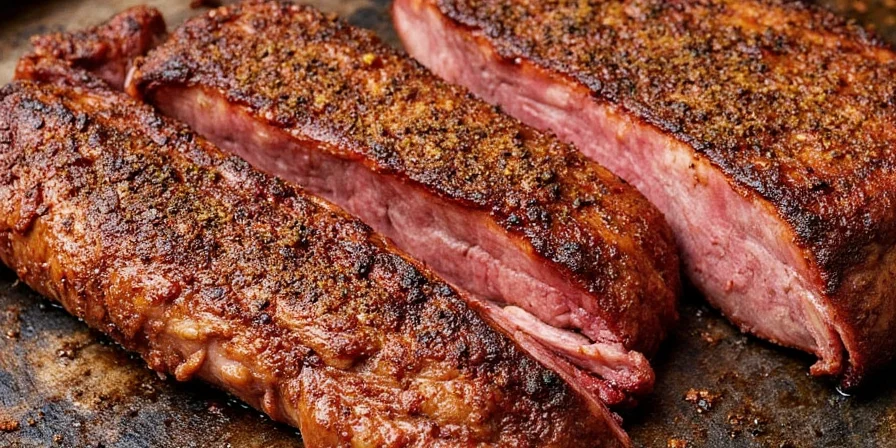
How to Store and Extend Shelf Life of Your Rubs
Want to keep your blends tasting fresh all season long? Follow these storage tips:
- Store in airtight containers away from sunlight and moisture.
- Label each jar with the date and ingredients used.
- Add a few grains of rice to the container to absorb humidity.
- For best results, use within 6 months — especially if using whole spices you’ve ground yourself.
Frequently Asked Questions About Brisket Rubs
- Can I use the same rub for ribs and brisket? Yes, but adjust the amount — brisket needs more coverage and longer exposure.
- Should I inject the meat AND use a rub? Why not both? Injecting adds internal juiciness while the rub works externally.
- Is mustard under the rub necessary? No, but it helps bind the rub. Optional but recommended for beginners.
- Do I need to reapply the rub halfway through? No. Once applied, the rub becomes part of the bark. Leave it alone!
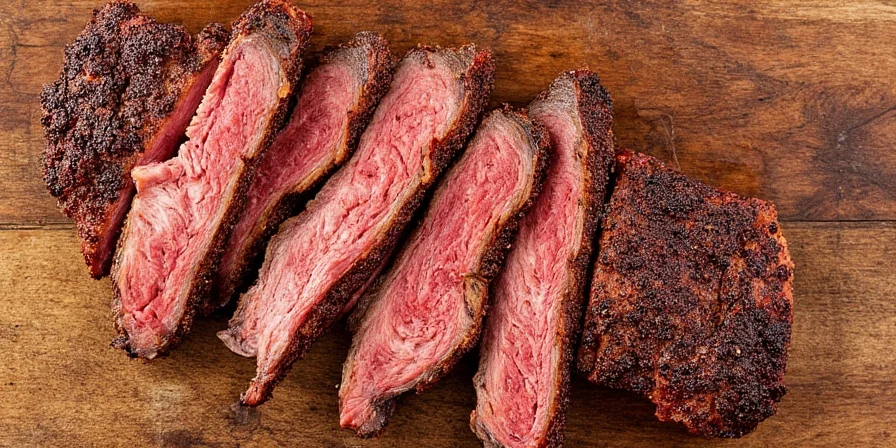
Conclusion: Find Your Signature Rub
Mastering the art of brisket rubs is like finding your own voice in barbecue. Whether you go traditional or throw in some curry and coconut, the key is balance and intentionality. Don’t be afraid to experiment — after all, even Texas started with trial, error, and a lot of smoke.
So next time you prep your brisket, remember: the rub is your first impression, your handshake with the guest, your chance to say, “I know what I’m doing.” Now get out there and make some damn good bark.
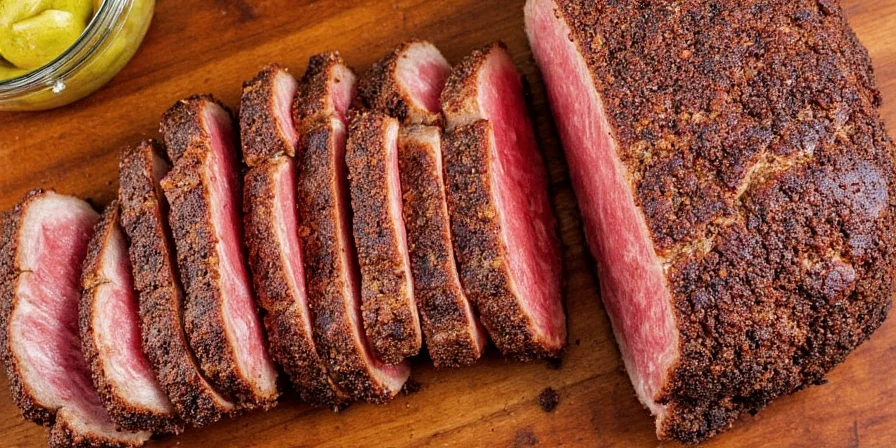

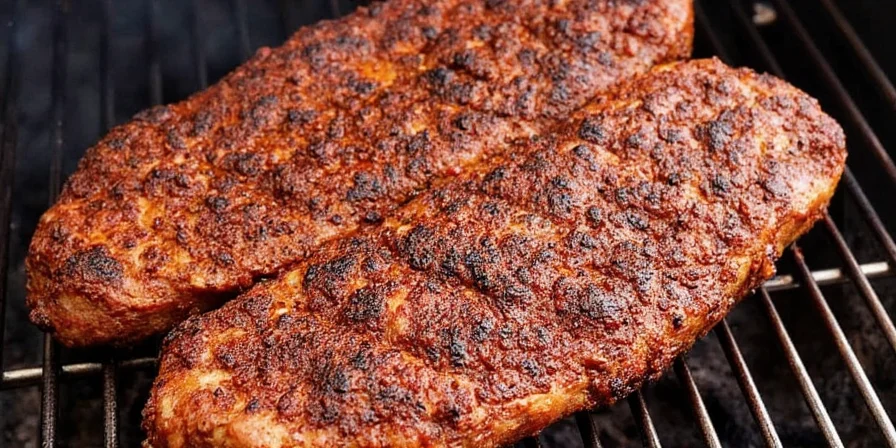









 浙公网安备
33010002000092号
浙公网安备
33010002000092号 浙B2-20120091-4
浙B2-20120091-4